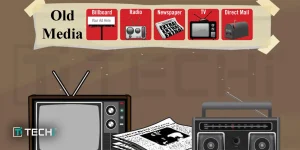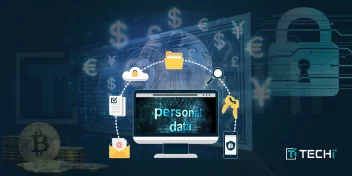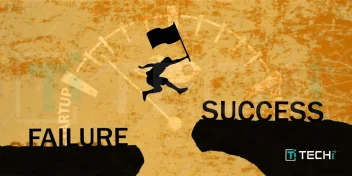Though we have, over the past few years, become accustomed to rather strange, aggressive ideas from those who run the movie and music businesses, the latest move from the RIAA and MPAA is a little astounding.
Today, the Electronic Frontier Foundation, an organization dedicated to defending internet users’ rights, outlined some of the suggestions made by the media conglomerates for protecting their content. They, along with many other players, were asked to weigh in on how intellectual property should be treated in a changing, networked world.
And you know what the MPAA and RIAA suggested? Well, among other things:
- Anti-infringement spyware to be installed on users systems
- Filtering technology on internet service provider’s networks to prevent the spread of copyrighted material
- ‘Inform’ and ‘educate’ (i.e. harass) entrants to the US about the ‘dangers of pirated material’
- Intimidate countries that do not agree with these policies, using US economic clout to threaten them
- Use federal resources to employ agents to crack down on copyright thieves
So, how does that sound? Having spyware installed on your system and monitoring what you’re watching? Having your ISP filtered and throttled so that the MPAA and RIAA can control what gets distributed around the internet? Super, right?
But it isn’t simply the stunning sense of entitlement and invasiveness that’s the issue here. There’s something bigger at stake than simply ‘this is not how you should treat your customers’.
What the RIAA and MPAA have failed to understand is that new technologies like the web don’t simply represent new ways to pirate material – they are part of a seismic change in culture. By failing to understand that this is a cultural and not only technological or economic shift, media businesses are on the brink of becoming obsolete due to an obsession with control.
Technically speaking, you might articulate the change in how we think of these things by talking about ‘the economics of scarcity’ vs. the ‘economics of abundance’.
See, physical media is hard and expensive to create and distribute – not only do you have to find the materials to press CDs or print books, you have to then distribute them on trucks and trains and what-have-you. This creates an economic system based on scarcity, or as we more traditionally think of it, supply and demand. Limited by physical constraints like materials and labor, you make a certain number of things and then you set the price based on how many people want that thing.
But when you switch to digital, this scarcity often disappears. An MP3 or movie file or eBook is just ones and zeroes. After the initial costs of creation are done with, creating a new copy costs almost nothing. Suddenly, things are abundant – there is no physical limit on how many of something can be made – and this changes things.
But that’s only the economic side of things. Culturally, there has also been a shift in how we think of accessing content like TV shows or films or music. Whereas once it seemed to make sense to save our pennies for new records or films, it’s now much harder to justify that expense because there is so much available for free, legitimately or not. You know this – it’s everywhere around the web, because no-one can control the spread of information.
People will often talk about this in terms of ‘stealing’ or ‘entitlement’ – which has it merits – but also misses the point. Once a person has experienced the freedom of something like Napster or Bittorrent, it’s hard to put that genie back in the bottle. It isn’t about ‘thieving’ as much as it is this: once you know what it’s like to access culture with such freedom, going back to the basics of plunking down 20 bucks for a iTunes movie you can’t copy, can’t take to your friends house or can’t watch on your PS3 not only feels strange, it feels plain backwards and absurd.

By attempting to replicate the scarcity model in the digital age, media businesses have made clunky DRM’ed products and have alienated consumers, and they are voting with their wallets. It might seem sensible to try crack down on consumers, but it’s like trying to nail jello to wall: you can’t do it, and it wasn’t a very good idea in the first place.
That may be controversial – and might even seem to support piracy – but that isn’t the case.
There are solutions to this problem, among the best of which is something like ‘monetizing the pipes’ – i.e. charge for the distribution. Another option is something like eMusic, which makes you pay a set amount for a certain number of MP3s a month. More options include what Mike Masnick calls ‘finding other scarcities’ like musicians making money from live shows and merchandise but giving the music away for free.
But the point boils down to this: the world has changed. The internet works on principles of openness and exchange, and information and content ricochet around at an amazing rate. You just can’t control that without unfairly limiting people’ experiences of the web. This is what the MPAA and RIAA have failed to understand. They are still working in a mindset that is based on scarcity – we have a limited amount of product, and we have to protect it – and that’s an ideal that certainly was noble and fair years ago.
But when culture and technology have changed so drastically, and digital information fundamentally works through copying and spreading, it’s also a naive one. Rather than trying to lock down the entire internet and the exchange of media, those concerned should be looking to establish new business models or new products that draw people in (like Avatar, for example).
After all, if they don’t, it’s not we who will lose. People will continue to create, and they will find ways to finance and distribute them using new tech. The MPAA and RIAA, on the other hand – well, it may already be too late for them and the lumbering dinosaurs who lead them.





Chelfyn Baxter
If there was a scarcity of product, then we’d have difficulty finding content to copy – that is clearly not the case – more films and more music are made each year. If anyone can find a reliable statistic that shows shrinkage in creativity, I’ll change my tune, but the opposite is happening. More people are making more creative works for a larger audience than ever before.
I say this as an artist and musician (What do you do Stephen? Work as a middleman for a right-holder orginaization?) I want the freedom to deliver my works to a worldwide audience without having to grovel to the gatekeepers of “commercial” media and force my art through the filters of “what will sell”. I make money by selling my time and expertise, and I keep this separate from the creation of my art.
Lead Guitarist
Hopefully Governments will wake up and put a stop to the ridiculous shit that these obsolete behemoths try to do, and the claims they make. Once it becomes easier to change to something applicable in the modern day, rather than fight against it, something good might actually happen.
navneetalang
Thanks for the comment, Steven.
It’s a fair point – but to be clear, I’m not endorsing stealing. What I’m suggesting is that people once people become accustomed to an all-you-can-eat model, it’s hard to ask them to switch back. And ultimately, if the market is the standard by which business must act, then media co’s must respond to their consumers, not the other way round.
It’s true, I shouldn’t infringe on copyright; but neither should I try an protect someone else’s business model.
You’re absolutely right, though: I’m as lost as anyone on what these new models should look like.
Mark
I agree with most of your points, except those regarding downloading copyrighted content illegally as being equated to theft, stealing, or piracy. You see, those are all concepts that in any legal sense of the word boil down to denying or depriving a property owner’s right to access to their property. By stealing your car, I am depriving you access to your car. By downloading your music, you are still free to enjoy the use of your music. I have not interfered with your ability to listen, edit, or even profit from your music. And for those who are going to claim that by me downloading the music, I am depriving you the money you would have otherwise earned if I had purchased it, that is a fallacious assumption. It could be such that I would have chosen to not purchase it if I couldn’t acquire it by any other ‘free’ means. And it’s also a very different legal accusation to say that someone ‘stole’ money from you than it is to say that someone prevented making you money from their actions. And although the latter would seem immoral, it is typically only so with the subtle difference of having the intention of gaining from specifically causing financial harm to another party, but when someone is downloading digital content, I’m sure it would be found that that is rarely the intention. Anyone who downloads content illegally probably doesn’t do so with the thought, “By downloading this content, I am preventing them from making money, thus harming them financially,” but rather, “I enjoy ‘so-and-so’s’ art, and am able to access a lot more now that I can get it for free.” Also, violating a financial agreement that would intentionally benefit you at the cost of the other parties involved under a dishonest guise beyond stated intentions in the contract that both parties had previously agreed upon (ie fraud) would be considered unethical, but a musician who does not make money, as a negative externality of a burgeoning cultural trend, hardly counts as any legitimate unethical claim, especially when there are other options to make money as the above video suggests. If your oil company starts losing money because people turn to more available and less expensive forms of energy, there is only so much legal clout your can throw around before people will just stop supporting you, and any such legal clout regardless of whether it is permitted by the government or not is still unethical. Preventing consumers from voluntary exchange, especially while using their own property is definitely a violation of private property rights.
Jordan
I was sitting in copyright law class the other day, and we discussed this same topic. We bought up the idea of “freeish” – an idea where the consumer, at first glance, appears to be getting the product for free. In actuality, they’ll be paying a small tax or fee tacked onto something they are already paying for (for example, something that can enable the prospect of piracy).
I feel like something that works to this ideal is an excellent step in the right direction, though it might not be the be-all-end-all solution for businesses getting the money they are entitled to, but also to not “do their customers wrong” as the RIAA and MPAA have done thus far.
A few universities have actually done something similar to this plan, one I know of is University of Massachusetts in Amerhest. They set up a plan that charged students a small fee, similar to an “activities fee” that is added to their tuition. In exchange, students got access to a program in which they could download most any content for “free” – this content included a vast library of songs and music.
Anyway, that’s where I think the RIAA and MPAA should head next, rather than further oppressing people who aren’t complying with their ways of business.
Derp McDerpson
It’s astounding how Stephen managed to miss the point so completely.
Homicidal F Gecko
Yes, or maybe he is trolling us. W/E
Stephen
Hate to burst your bubble, but there IS a scarcity of product. There is that ONE movie, or ONE song. You seem to feel the product is the physical dvd or cd, but the product is the actual content, that in many cases cost the producer millions of dollars.
You are the one with the sense of entitlement. You seem to feel are entitled to take that product for nothing simply because you can. There should be another model, I agree, but what is that model?
greg brunty
Good point about all the crap they pack into a dvd to make you watch. I support creativity and artists, but another means of marketing must evolve to remain profitable. I’ve outlined some new ideas on my blog “Manifesto” at
castle
Time for a thought experiment.
A man named Stephen is walking down my street, whistling an original tune. I hear his song, fall in love with the melody and memorize it instantly. If I try to whistle it myself, is Stephen entitled to the money in my wallet?
Is it now within Stephen’s rights, as a content creator, to prevent me, a replicator, from ‘stealing’ his scarce product? Should he be able to force a post-hypnotic suggestion on me that prevents me from replicating his tune? (human spyware) Should he be allowed to sue me? What if I teach the tune to others?
Ideas are not property. Once an idea is let out a mind, it cannot be contained. Content, or ‘intellectual property,’ equates with ideas. The artificial scarcity of analog media that slowed the distribution of content is now gone. The ignorant, thuggish gangsters who amassed a fortune through control of the distribution of the old media really need to understand that their choice is to adapt or face extinction. Personally, I would love to watch them rot.
Consumers
Hate to burst your bubble, but there is no product. You seem to feel that the intangible information is a physical product. It is not. It can be infinitely replicated, and it will be, because it never existed in the first place.
Scarcity does not apply here. Rethink your (mis)understanding of economics.
Slowcanuck
Hey Steve,
First off I honestly believe you are either a troll, or one of those paid interns the MPAA or RIAA hired to “re-educate” the public. Here is the problem with your model.
Digital is not stealing, simple – if you ad DMR or locks – you are creating a false scarcity which makes your product actually worth less than it should be. At 99 cents a song, or 5 dollars a movie on iTunes people are still making money. Make those file DRM free and add in a ad widget in the bottom corner – something click-able and IP relevant and you have the perfect model for digital distribution. Everyone who touches it after it was bought has the mini corner ad – like the abc logo on well, abc. Just an idea!!
WOW
Stephen, you are missing the whole point. The idea that there is one product, a precious object if you will, is entirely out the window. Multiples can, and will exist in any number so long as they have value. The mass distribution systems of the internet, in my opinion actually help in most cases. I can personally say that it hasn’t affected my purchasing patterns in any way. I still buy my 2 or 3 records a year, but through the internet I am able to become more culturally enriched. I know that the topic often falls onto the subject of music, but take books as a different example. If people were, in theory, illegally download e-books and learning valuable skills that they might not otherwise have the means to acquire, wouldn’t that be a good thing?
Kevin M
Stephen,
You are acting like the retards at the MPAA and the RIAA!